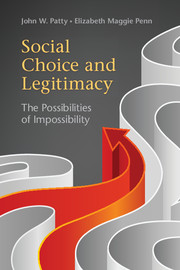4 - Legitimacy and Choice
Published online by Cambridge University Press: 05 August 2014
Summary
In the first part of this book, we argued that social choice–theoretic results such as Arrow's theorem and the Gibbard-Satterthwaite theorem motivate the study of democratic politics by illuminating the difficulties inherent in accommodating multiple goals within a single decision framework. The theorems tell us that democratic procedures really matter; they must do more than simply select a best outcome, because such an outcome will often not exist. In such cases, it follows, collective choices must be justified, or legitimated, on a basis other than being the unambiguous product of popular will. According to the theory we present and develop in this part of the book, the legitimacy of a collective decision is based on the provision of an explanation (reason, justification, rationale, etc.) for it.
The social choice arguments presented in Part I establish that cycles and intransitivity are endemic to decisions based on the aggregation of multiple criteria (regardless of whether these criteria are directly based on individual preferences). Specifically, the notion of “the best choice” is frequently ill-defined in such settings so that, even after criteria have been duly aggregated, the question of what to choose may not have yet been answered. Such cases are exactly those in which a legitimate choice requires an additional explanation above and beyond the details of the aggregation.
- Type
- Chapter
- Information
- Social Choice and LegitimacyThe Possibilities of Impossibility, pp. 73 - 83Publisher: Cambridge University PressPrint publication year: 2014
- 1
- Cited by



